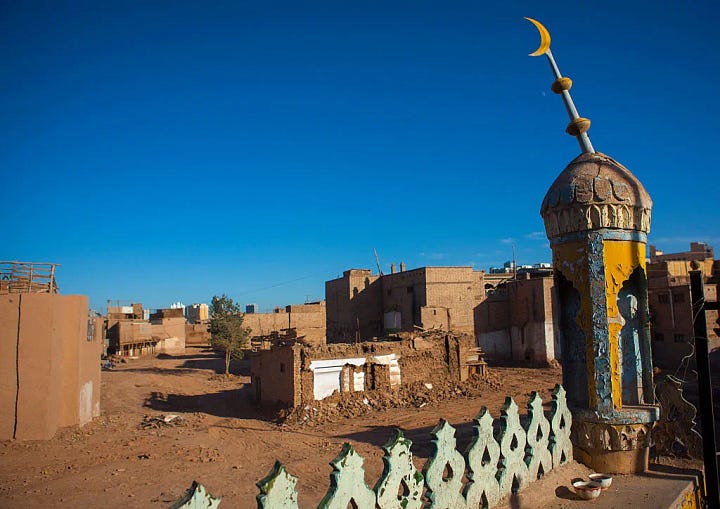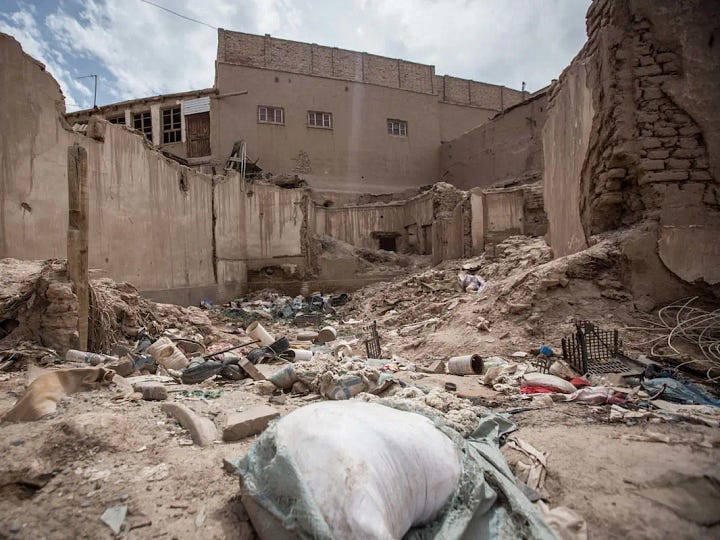The Hypocrisy of Silence: Muslim Countries and Activists on China's Treatment of Uyghurs
The Chinese government has been demolishing mosques and persecuting Muslims, in their country. But the "defenders of Islam" are silent
What's Happening in China?
In the Xinjiang region of China, a severe and systematic repression of the Uyghur Muslim population has been unfolding. Since 2017, the Chinese government has embarked on what it describes as a campaign against extremism, which has resulted in the demolition of mosques and religious sites, as well as the forced assimilation of Uyghurs.


Reports and satellite imagery have documented the destruction of religious and cultural sites. Over a million Uyghurs are believed to have been detained in what the Chinese authorities call "re-education camps." These camps are designed to indoctrinate Uyghurs, forcing them to abandon their religious beliefs and cultural practices. Survivors have reported harsh conditions, including forced labor, torture, and indoctrination.
The Chinese government's policies have also extended to severe restrictions on religious practices. Uyghurs are forbidden from fasting during Ramadan, wearing traditional attire, and using the Uyghur language. The extent of surveillance in Xinjiang is unprecedented, with advanced technology being used to monitor and control the population.
The Silence of Muslim Countries and Activists
Despite the extensive documentation of these human rights abuses, there has been a conspicuous silence from many Muslim-majority countries and prominent Muslim activists. Countries that have historically positioned themselves as defenders of Islam have refrained from criticizing China. This silence is striking, especially when contrasted with their vocal reactions to other issues.
For example, When Geert Wilders made his statements, there were immediate and strong condemnations from Muslim-majority countries. Similarly, when Nupur Sharma's comments surfaced, countries like Qatar, Kuwait, and Iran summoned Indian ambassadors and issued statements condemning her remarks. These figures have been met with widespread condemnation, protests, and calls for boycotts.
The Left parties in India, who have conducted rallies supporting Hamas and Palestine extremists doesn’t have a word in this issue.
The silence on China's actions raises questions about the principles and motivations behind these reactions.
Questioning the Silence
This silence suggests a troubling pattern: are reactions only provoked when the perceived opponent is a Western nation, a Jew, or a "Sanghi" from India? .
The Ayodhya dispute, which centered around the claim to a site regarded as the birthplace of Lord Ram and the location of the Babri Masjid, saw decades of legal and political battles. The Indian Supreme Court's 2019 verdict allowed for the construction of the Ram Temple while also allocating land for a new mosque. Despite this fair legal resolution, there was significant international and domestic outcry from some quarters, including protests and strong reactions from various Muslim groups in India. But these people doesnt have a word about what’s happening in China!
If the defense of Islam and the rights of Muslims are genuinely the driving force behind these reactions, then the Uyghur issue deserves the same. The current silence undermines the principles of justice and human rights that these countries and activists claim to uphold.
Conclusion
The persecution of Uyghurs in China is one of the most pressing human rights issues of our time. The silence from many Muslim-majority countries and activists, contrasted with their reactions to figures like Geert Wilders and Nupur Sharma, exposes a deep hypocrisy.
Anway this is not surprising as we have another glaring example of hypocrisy among many Muslim-majority countries is their stance on Palestinian immigrants. While these countries frequently express solidarity with the Palestinian cause and condemn Israel, their actual willingness to accept Palestinian refugees and provide them with full citizenship rights is often limited.


As controversial as it is, at least China is trying to stop the spread of sharia law in their country.
Not unexpected.